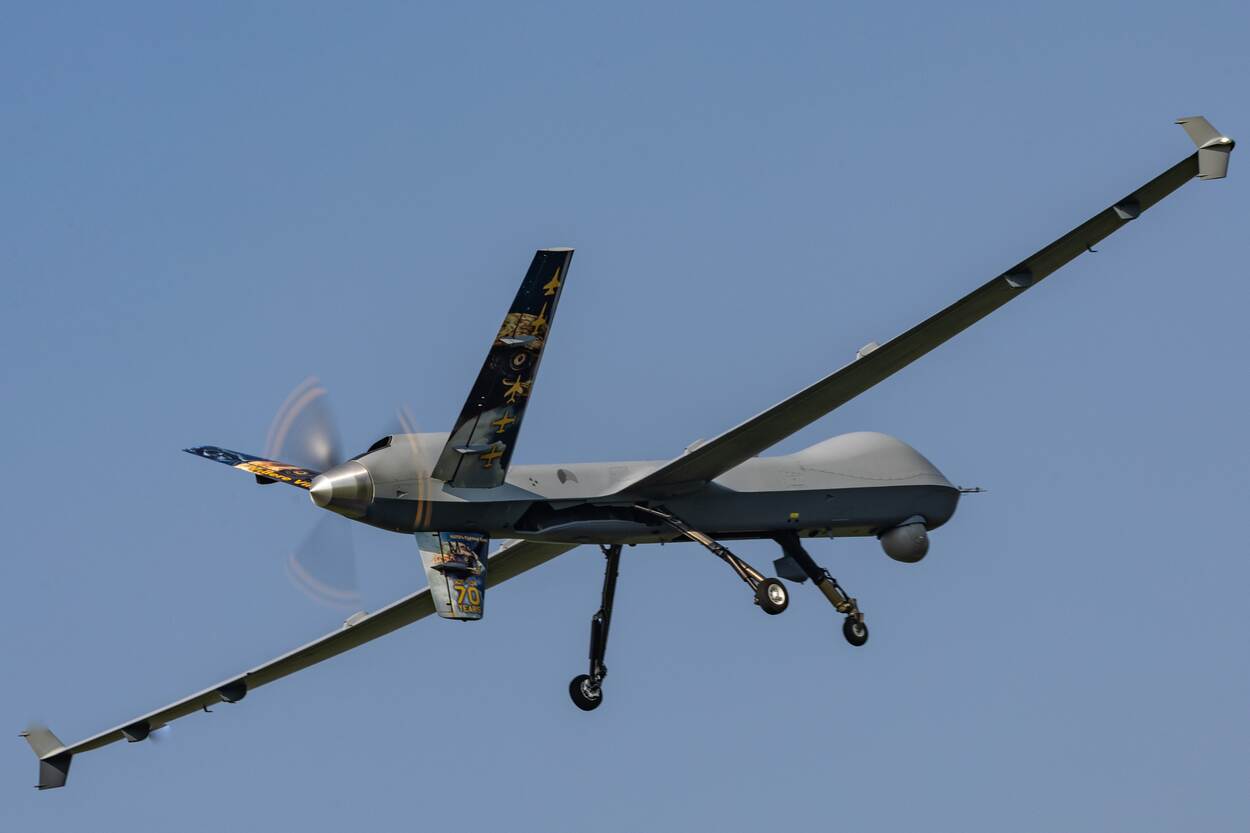The Royal Netherlands Air Force (RNLAF) has taken a significant step in bolstering its military capabilities with the first flight of an MQ-9 Reaper over Dutch airspace. The unmanned aerial vehicle (UAV), known for its surveillance and reconnaissance abilities, executed a practice mission over the northern regions of the Netherlands and the adjacent sea area. This marks a pivotal moment as the RNLAF prepares for a broader integration of these systems into its defense strategy, both for national security and NATO cooperation. The MQ-9’s debut flight is part of an ongoing training program in which military personnel will practice coordinating with fighter jets, ground troops, and air traffic controllers. This operation is part of the Weapons Instructor Course, where the UAV plays a critical role in supporting ground forces. The aircraft’s ability to identify targets and relay real-time information is invaluable, especially in modern combat scenarios. Such exercises are vital for honing the skills of ground troops, air controllers, and pilots, ensuring that the Netherlands is prepared for future deployments, whether in defense of the homeland or in international missions.
The Netherlands has been utilizing the MQ-9 Reaper since April 2022, initially deploying them in Romania as part of allied defense efforts. However, the expansion of operations to Dutch airspace represents a new phase in integrating the UAV into the country’s defense infrastructure. The MQ-9 Reaper is stationed at Leeuwarden Air Base, where the focus is on not only training personnel but also fostering coordination with international partners and domestic agencies, such as air traffic control. These UAVs are pivotal for the RNLAF’s long-term operational goals. The MQ-9’s capacity for real-time intelligence gathering makes it a valuable tool for modern warfare, where information dominance is crucial. The Netherlands’ fleet currently consists of four MQ-9 Reapers, with additional systems on order. Though currently unarmed, these UAVs provide critical surveillance, target identification, and communications support. Plans are underway to arm future MQ-9s, enhancing their versatility and role in Dutch defense.

Manufactured by General Atomics Aeronautical Systems, the MQ-9 Reaper is an advanced UAV designed for long-endurance, high-altitude operations. Compared to its predecessor, the MQ-1 Predator, the Reaper boasts a more powerful engine and the ability to carry a significantly larger payload. This capability allows it to support a broader range of missions, including intelligence gathering, surveillance, reconnaissance, and future offensive operations when armed. Equipped with a Synthetic Aperture Radar and specialized ground search radar, the Dutch MQ-9s are particularly suited for maritime and ground surveillance. These advanced sensors make the Reaper invaluable in monitoring vast areas, detecting potential threats, and providing real-time data to ground forces and decision-makers.
The decision to arm the MQ-9 Reaper fleet is expected to enhance the Netherlands’ military capabilities significantly. With current operations focusing on training and reconnaissance, future armed MQ-9s will provide the RNLAF with a flexible, remote-controlled platform for neutralizing threats. The combination of long endurance, advanced sensor packages, and the potential for lethal strikes makes the MQ-9 a formidable tool in modern warfare.
As the RNLAF continues to develop its UAV capabilities, the MQ-9 Reaper will play a crucial role in ensuring the Netherlands can meet both national defense requirements and obligations to NATO allies. By 2023, the MQ-9 fleet is expected to reach full operational status, marking a new era in the Netherlands’ defense strategy. The integration of the MQ-9 Reaper into Dutch military operations symbolizes a forward-looking approach to modern warfare, where unmanned systems, real-time intelligence, and international cooperation are increasingly pivotal. The future of Dutch military readiness looks promising with the continued development of this advanced technology.













